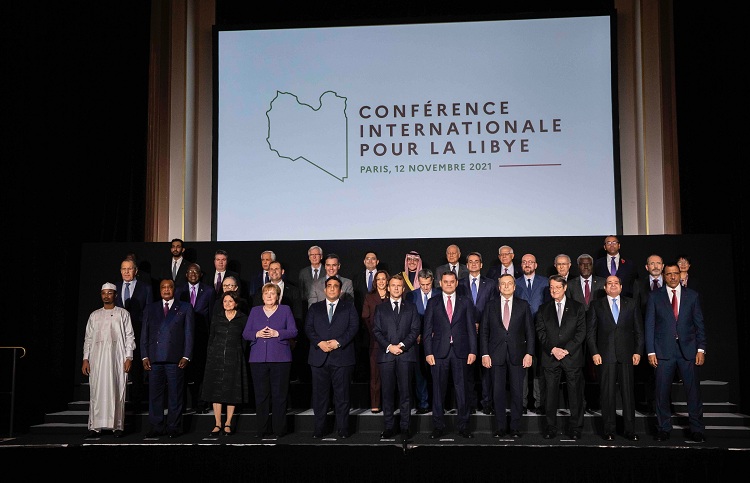The Diplomat
The President of the Government, Pedro Sánchez, participated yesterday in Paris in the International Conference on Libya, which concluded with a Joint Declaration reaffirming the commitment of the international community to stability and peace in the country and defending Libya’s sovereignty against foreign interference.
The main objective of the Conference, jointly organized by France, Italy, Germany and the United Nations and attended by 13 heads of state or government, 14 countries at vice-presidential or ministerial level and five international organizations, in addition to the Libyan authorities themselves, was to launch a joint message in favor of the holding of legislative and presidential elections on December 24 and the withdrawal of all foreign forces present in the country.
In addition to the thirteen heads of state and government (Spain, France, Germany, Chad, Cyprus, Egypt, Greece, Italy, Malta, Niger, the Netherlands, Tunisia and the Democratic Republic of Congo) and the representatives of the other states, the summit was attended by the EU High Representative, Josep Borrell, and the President of the European Council, Charles Michel.
The United States was represented by Vice President Kamala Harris (who appears next to Sánchez in the family photo, although no bilateral meeting was held with her) and Russia by its Minister of Foreign Affairs, Serguei Lavrov. Algeria and Morocco, two of Libya’s neighbors currently embroiled in a serious diplomatic problem, were represented by their foreign ministers. The presence of the Moroccan minister, Nasser Bourita, with whom there was also no bilateral meeting, coincided with a particularly delicate moment in relations between Morocco and Spain.
During his speech, the President of the Government stressed “Spain’s support for the process of political and security stabilization in Libya”. He also defended the implementation of economic reforms to complement political reforms and called for guaranteeing and safeguarding the unity and independence of economic institutions and improving the provision of services to Libyan citizens. “The progress of the past two years shows that Libya can move forward,” he said. However, “progress will only be possible if there is sustained political will and the audacity to commit” and, in that sense, “Spain wants to be a central partner for Libya and can certainly count on our support,” he concluded.
According to Moncloa, Spain’s commitment to Libya is evidenced by its contribution of 100,000 euros to the United Nations Development Program (UNDP) fund to support free and fair elections in the North African country, as announced last June by Sánchez himself during his visit to Tripoli. Likewise, Spain has committed another 50,000 euros for demining work and will make available to the United Nations troops from the Armed Forces, the National Police Corps and the Civil Guard for the ceasefire monitoring mission.
At the end of yesterday’s meeting, the participants agreed on a Joint Declaration on politics, security, economy and human rights which reaffirms respect for the sovereignty, independence, territorial integrity and unity of Libya and rejects foreign interference. It also reaffirms the commitment of the international community, in partnership with the Libyan interim executive authority and other authorities, to a peaceful, stable and prosperous country through an inclusive Libyan-led political process, and recognizes the important role of the United Nations in this process.







